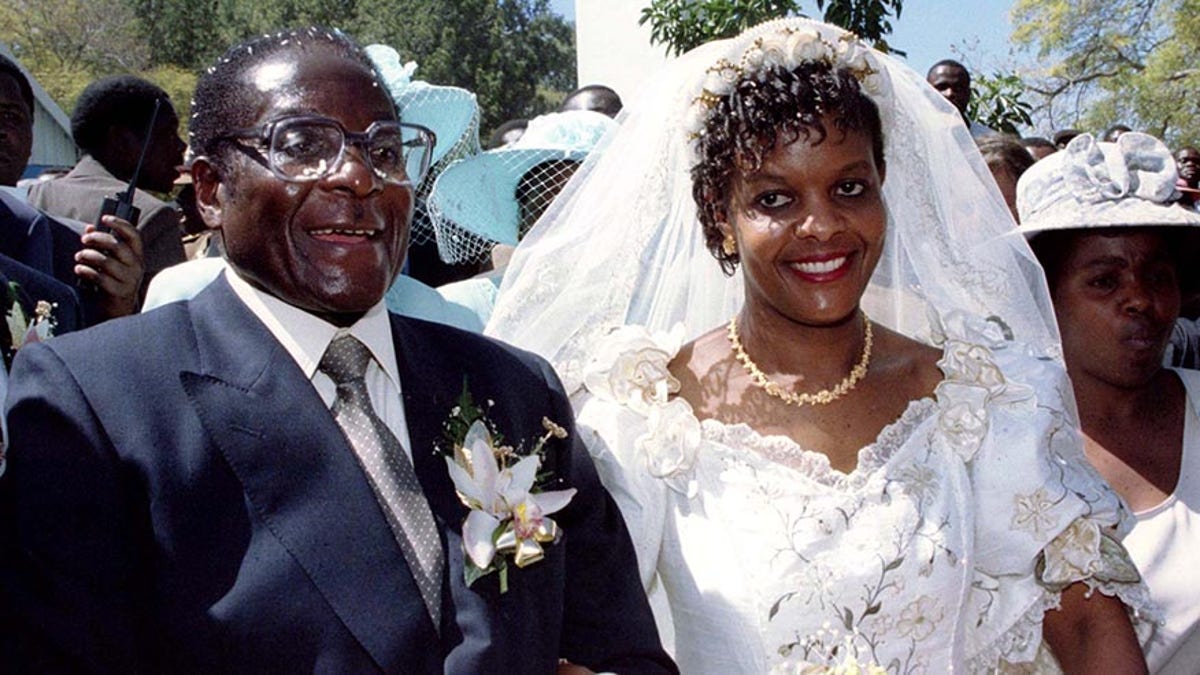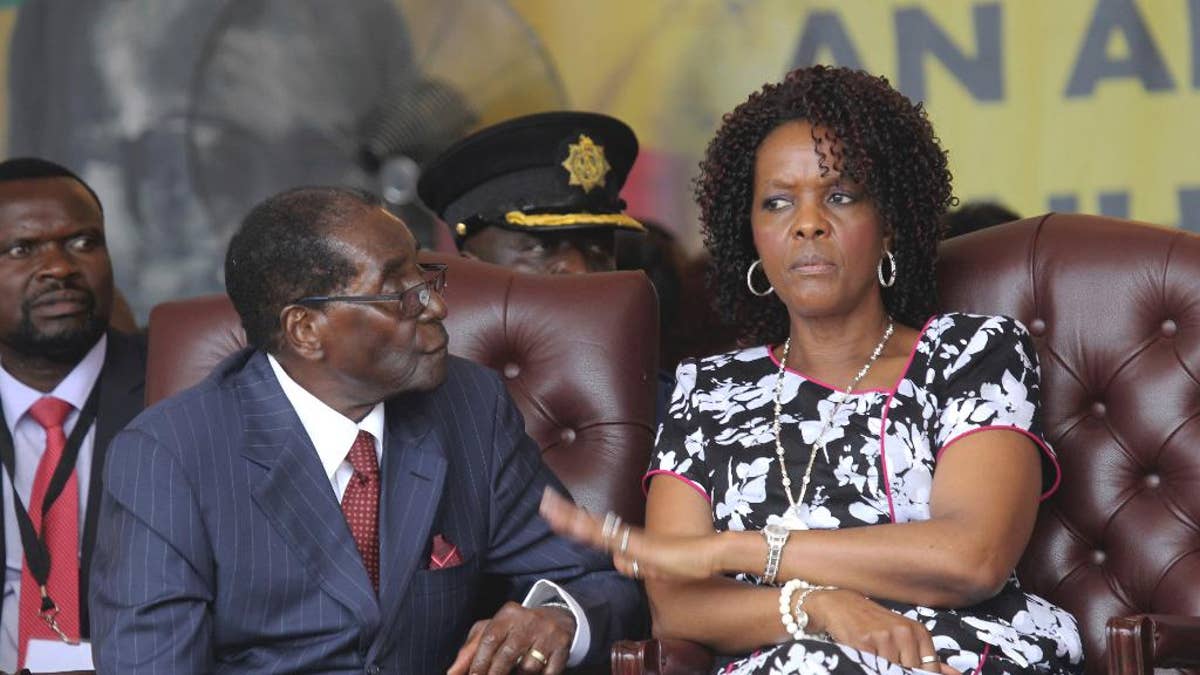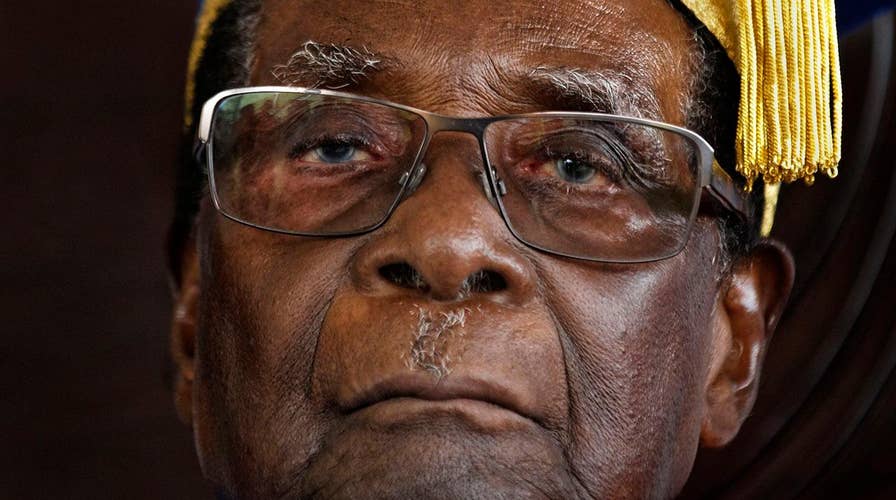Robert Mugabe, longtime ruler of Zimbabwe, dead at 95
Controversial former president of Zimbabwe Robert Mugabe has died at age 95.
In the aftermath of Robert Mugabe's death Friday, the focus may soon turn to the longtime Zimbabwe strongman's wife, who served as the country's controversial former first lady and enjoyed unparalleled protection from prosecution during Mugabe's life — but who may be in a far more vulnerable position now.
Nearly two years after he was ousted in a military takeover, Grace Mugabe's future in the former British colony is far from certain. When their fall from power was imminent, Mugabe and his family were promised immunity from prosecution and granted a generous pension by now-President Emmerson Mnangagwa. According to some reports, the agreement between Mugabe and the military concerned Mugabe's direct and extended family, including his three children with Grace.
But with his death, it's not clear if that pension or unquestioned protection remain — especially as it relates to the polarizing first lady, whose time next to her husband left a bitter taste across Africa.

Robert and Grace Mugabe's extravagant wedding in 1996 came after they had an affair while both still married to other people. (Reuters)
WHO IS GRACE MUGABE, AFRICA'S MOST POLARIZING FIRST LADY?
The former first lady, 41 years younger than her husband, remains an unpopular figure in Zimbabwe, where she was known for extravagant spending, a lavish lifestyle and an entitled demeanor.
Dubbed "Gucci Grace" and "Dis-Grace," she twice used diplomatic immunity as a shield from assault charges — one situation involving a British photographer in Hong Kong and another stemming from her alleged electrical cord whipping of a South African model. In the latter case, however, her immunity was stripped away in December and an arrest warrant was issued.
The couple’s sons – Robert Mugabe Jr. and Chatunga Bellarmine – were also known for flaunting their lavish lifestyle on social media.
FLASHBACK: FORMER ZIMBABWE FIRST LADY GRACE MUGABE SUBJECT OF ARREST WARRANTS FOR ALLEGED ASSAULT
Despite the controversies, Mugabe remained devoted to his wife, calling her “my Grace” in his last press conference and demanding better treatment for his spouse from Zimbabwe’s new rulers.
In his later years, Grace was a political liability for the aging autocrat — especially once rumors began swirling that she was being groomed to be her husband’s successor, instead of long-serving loyalists like Mnangagwa, and that uncertainty ultimately triggered the military coup that forced Mugabe from power.

Zimbabwean President Robert Mugabe and his wife Grace during his birthday celebrations in Masvingo on Feb, 27, 2016. (AP Photo/Tsvangirayi Mukwazhi)
Grace has mostly retreated from the limelight since her husband was ousted, but his death could mean her re-emergence, and, coming amid a shattered national economy, the presence of the well-to-do former first lady may not be welcome.
Even residents in the capital, Harare, have been stunned to find themselves in some of the worst conditions of their lives: waiting in lines in the middle of the night to draw water at wells because infrastructure has largely collapsed, lining up at shops for basics such as bread and waiting at the passport office for weeks in the hopes of escaping the country and its misery — as millions of others have done.
"We were promised Canaan," one Harare resident, Dadirai Tsvakai, told The Associated Press earlier this year during an interview during yet another blackout in the city. "But this is hell."
The desperation has exploded in protests more than once this year, leading to violent crackdowns by security forces in which abuses such as indiscriminate killings and rapes of civilians are alleged to have occurred.
CLICK HERE TO GET THE FOX NEWS APP
Many recall better days, though still terrible, when the country at least had its own feeble currency, no matter how many zeroes it carried in wild hyperinflation.
"Life was not that good, but it was never this bad," Harare resident Silas Marongo said Friday, as the country reeled from the death of a 95-year-old man who some had thought would never release his grip on the country, much less life itself.
The Associated Press contributed to this report.

